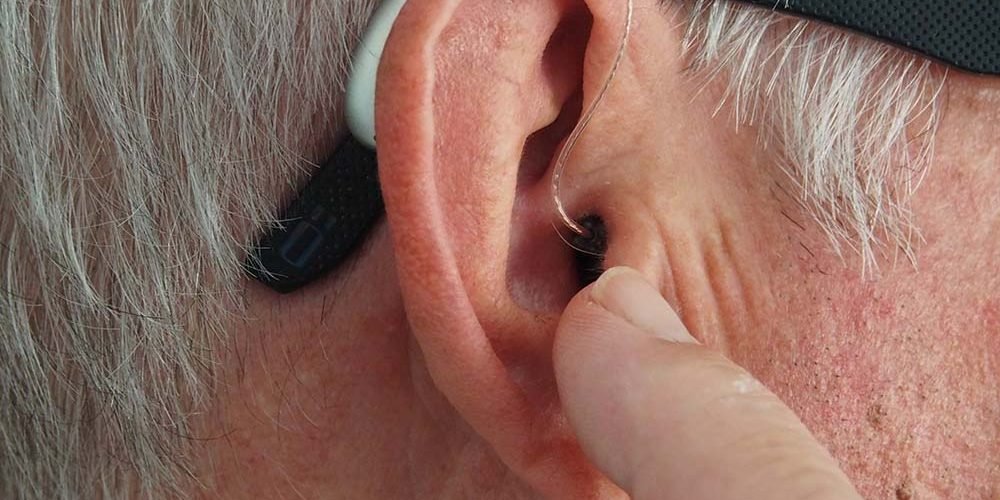Keeping our senses intact as we age is essential to our overall health. Hearing is the most important of these senses for connecting us to the outside world. Our ability to effectively communicate, appreciate music, and engage in social interactions highly depends on our aural health. Due to aging or other factors, hearing problems can arise in many older adults, necessitating comprehensive medical care. Whether Medicare enrollees have access to hearing tests, hearing aids, and related services is of the utmost importance. Medicare provides essential medical coverage for numerous aspects of health. However, its policies on hearing-related services have frequently been the subject of inquiry and discussion. In this article, we will navigate the complex terrain of Medicare coverage for hearing and discuss recent developments that may impact beneficiaries.
Table of Contents
Medicare and Hearing & Balance Exams
Medicare Part B covers hearing and balance exams for diagnostic purposes. Medicare Part B will cover these examinations if a healthcare provider deems them necessary to determine the need for medical treatment. In addition, beneficiaries can see an audiologist annually for non-acute hearing conditions or diagnostic services related to surgically implanted hearing devices without a referral from a physician. Beneficiaries are responsible for 20% of the Medicare-approved amount for these services after satisfying the Part B deductible. Also required in an outpatient hospital setting is a copayment to the hospital. However, it is essential to note that Original Medicare and Medicare Supplement plans (Medigap) do not cover hearing device costs. Individuals typically bear this expense.
Medicare Advantage Plans and Hearing Aid Coverage
Medicare Advantage plans, also known as Medicare Part C, offer a distinct perspective from Original Medicare, which does not cover hearing aids. Medicare Advantage plans must cover the same services as Original Medicare. However, they may offer additional benefits, such as hearing aid coverage.
The majority of Medicare Advantage plans cover hearing aids. In addition to hearing aids, Medicare Advantage plans increasingly provide dental, vision, and prescription medication coverage. The particulars of hearing aid coverage can vary depending on the Medicare Advantage plan and insurance provider selected. These services are covered, including hearing tests, hearing aid cost, fitting, and maintenance/repairs. Some plans may feature copayment or coinsurance provisions for coverage, while others might provide allowances for hearing aids. Many Medicare Advantage plans include hearing aid benefits at no extra cost. This is a significant advantage. A plethora of plans boasts a $0 monthly premium appeal to recipients craving all-encompassing hearing health insurance.
Original Medicare’s History with Hearing Aids
In 1965, when the original Medicare program was created, the healthcare landscape looked radically different. Of note was the more reasonable pricing of hearing aids in the past. Consequently, including hearing aid coverage in the initial Medicare program was not feasible. Before this, many assumed that individuals could easily purchase hearing aids due to their affordable price. Medicare initially centered on tackling the most critical health issues in the early years. In the past, people thought they could buy hearing aids by themselves. Expansion in healthcare technology leads to a revelation of the gaps in Original Medicare coverage.
Medicare Advantage plans have made coverage more flexible and brought attention to how important it is to take care of hearing health needs. A lot of options cover hearing aids. As health care gets better and hearing health becomes more important, there has been a lot of talk about making Medicare cover hearing aids and related services. This change is part of a larger shift toward recognizing the changing factors that affect healthcare costs and the important role of hearing health in improving people’s quality of life.
Future Prospects: The Build Back Better Act
Introduced in November 2021, the proposed H.R.5376 Build Back Better Act seeks to expand Medicare coverage to include hearing aids and hearing care. After passing the House, the measure is currently awaiting Senate review. This bill, if passed, will integrate hearing health services and hearing aids into Medicare coverage by October 2023, bringing substantial relief to Medicare recipients. Individuals with “moderately severe, severe, or profound” hearing loss will be covered. Medicare Part B will provide coverage for hearing examinations, hearing aid fittings, and hearing aids themselves every five years. This coverage will encompass vital aspects of hearing health. This proposed expansion highlights the evolving comprehension of the significance of hearing health. It brings Medicare in line with modern healthcare realities.
The quest to preserve hearing health parallels the larger mission to preserve overall health. Medicare Advantage plans, and imminent legislative actions portend a more inclusive future than Original Medicare’s current position on hearing aid coverage. The changing landscape of healthcare highlights the importance of hearing health to a person’s overall quality of life, reinforcing the commitment to providing essential coverage adaptable to the changing requirements of beneficiaries.





